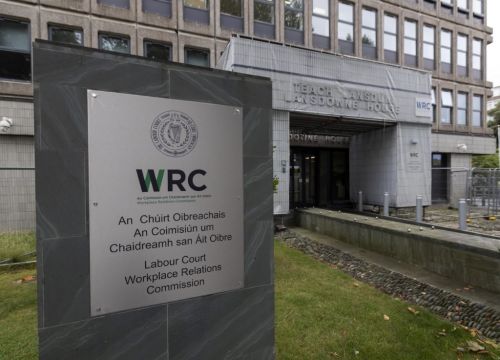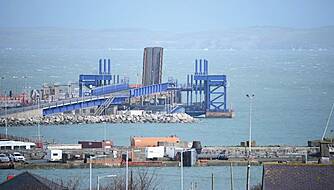A church official has been awarded compensation of €18,000 over the manner in which he was sacked for smelling of alcohol at work and poor attendance.
The Workplace Relation Commission ruled that the unnamed verger had been unfairly dismissed by his employer which controls the place of worship which is also a heritage site.
The verger, who had worked in the place of worship for 6½ years in a variety of roles before his dismissal, claimed the disciplinary procedures followed in dismissing him were unfair.
He also claimed the sanction of dismissal was “severe and disproportionate.”
The man, who received a monthly salary of €2,250, denied being under the influence of alcohol during the incident which resulted in his dismissal but admitted being out the night before.
SIPTU official Shonagh Byrne, for the verger , claimed he was advised he could bring a colleague to a disciplinary hearing in December 2019 but not that he could be represented by a trade union official which had placed him at a disadvantage.
The verger and his trade union representative were advised at an appeal hearing that the trade union official could not make representations on his behalf.
Ms Byrne also said he was not offered informal counselling as provided for under his employer’s disciplinary procedures.
She claimed the sanction of dismissal was “unfair, unreasonable and disproportionate.”
The employer’s solicitor, Gerard Dunne, claimed the dismissal was procedurally and substantively fair.
Mr Dunne also argued that if the WRC decided in the complainant’s favour that his contribution to his dismissal and his failure to sufficiently mitigate his loss should result in any potential compensation being reduced to nil.
The WRC heard that the verger was on a final written warning prior to his dismissal for gross misconduct for attending work under the influence of alcohol.
Separately he was on a final written warning for misconduct for arriving 45 minutes late to work without and failing to report his absence.
A HR manager for the place of worship said there had been a lot of informal chats and “tips on the shoulder” with the complainant about his conduct.
Evidence was heard that the verger was found asleep at work in November 2018, while a complaint was received on January 7, 2019 about him arriving late for work under the influence of alcohol and making inappropriate comments and jokes.
Mr Dunne said the verger was suspended with pay but his employer had shown considerable forbearance by imposing no disciplinary sanction following an investigation.
The WRC heard the verger agreed to take his medication at night to avoid drowsiness at work.
Mr Dunne said there were two further incidents of poor conduct between May 2019 and August 2019 after the verger had been issued with a final written warning.
They related to his failure to ensure there were two vergers on duty and attending work without wearing the proper uniform.
The WRC heard he subsequently missed his required participation in morning prayer on August 29, 2019, while his appearance was also noted to be “somewhat dishevelled” and he was acting in an unusual manner.
Two staff members also noticed a strong smell of alcohol from him.
The verger was sent home after he informed officials that he had been out drinking the night before which explained the smell.
He claimed he had also taken medication and had slept late as a result.
The WRC was informed that the decision to dismiss him was taken following an investigation and disciplinary process into the incident which was upheld on appeal.
WRC adjudication officer, Patricia Owens said she found the investigation process was flawless and its findings were reasonable based on the evidence, while the disciplinary procedure complied with legislation.
However, she expressed concern that the verger’s trade union official was not allowed to speak or make representations during the appeal hearing which she ruled breached legislation governing grievance and disciplinary procedures.
Ms Owens ruled that it was “grossly unfair” that the employee’s trade union representative had effectively been gagged by not being allowed to speak at the appeal hearing.
She said there was ample evidence to suggest the verger may have been suffering from a medical condition brought on by an earlier traumatic experience of which his employer was aware and had been supportive.
Ms Owens said she was concerned that no effort was made at the time of the incident on August 29th 2019 to refer the verger to the occupational health service to see if there was an underlying medical condition underpinning his behaviour.
In the circumstances, she claimed a reasonable employer might not have proceeded to dismiss an employee without first securing medical advice that would have been factored into the decision-making process.
Although she calculated the verger’s loss of earnings at €54,000, she reduced the award of compensation to €18,000 as he had provided no evidence of seeking employment since his dismissal.







